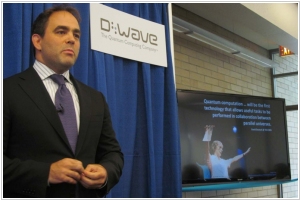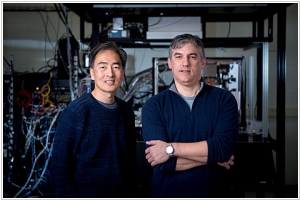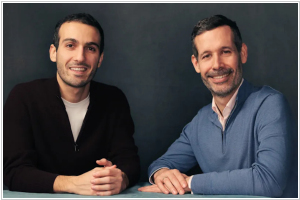D-Wave vs IonQ
October 11, 2025
D-Wave ($299M)
D-Wave Systems designs and manufactures quantum computing and superconducting electronics.
See also:
Top 21 Quantum Computing startups
Top 21 Quantum Computing startups
D-Wave and IonQ are both companies that create quantum computers and offer access to them via cloud services. Such quantum computing is typically used in applied areas such as optimization, training and search, as well as in research projects, for example for optimizing machine learning in large models.
However, D-Wave (founded in 1999) is a Canadian company that uses quantum annealing technology rather than universal quantum gates. It primarily focuses on problems of optimization, combinatorics, routing, scheduling and optimal resource allocation. The company is developing the "Quantum AI" initiative, which provides open tools for integrating quantum computing with machine learning and AI solutions. It's also collaborating with Zapata AI to jointly develop generative AI applications based on quantum methods.
IonQ (2015) is an American startup that uses a trapped-ion architecture, where individual ions are controlled by lasers to implement gates. The design supports all-to-all connectivity (any ion can be connected to any other, without the need for permutations). This technology implements universal quantum gates and supports the compilation and optimization of quantum circuits (not limited to optimization tasks). IonQ quantum computers are considered to have high accuracy (up to 99.9% two-qubit accuracy). The company has demonstrated own quantum machine learning algorithms, such as loading classical data into quantum states, classification on MNIST and others.
However, D-Wave (founded in 1999) is a Canadian company that uses quantum annealing technology rather than universal quantum gates. It primarily focuses on problems of optimization, combinatorics, routing, scheduling and optimal resource allocation. The company is developing the "Quantum AI" initiative, which provides open tools for integrating quantum computing with machine learning and AI solutions. It's also collaborating with Zapata AI to jointly develop generative AI applications based on quantum methods.
IonQ (2015) is an American startup that uses a trapped-ion architecture, where individual ions are controlled by lasers to implement gates. The design supports all-to-all connectivity (any ion can be connected to any other, without the need for permutations). This technology implements universal quantum gates and supports the compilation and optimization of quantum circuits (not limited to optimization tasks). IonQ quantum computers are considered to have high accuracy (up to 99.9% two-qubit accuracy). The company has demonstrated own quantum machine learning algorithms, such as loading classical data into quantum states, classification on MNIST and others.








